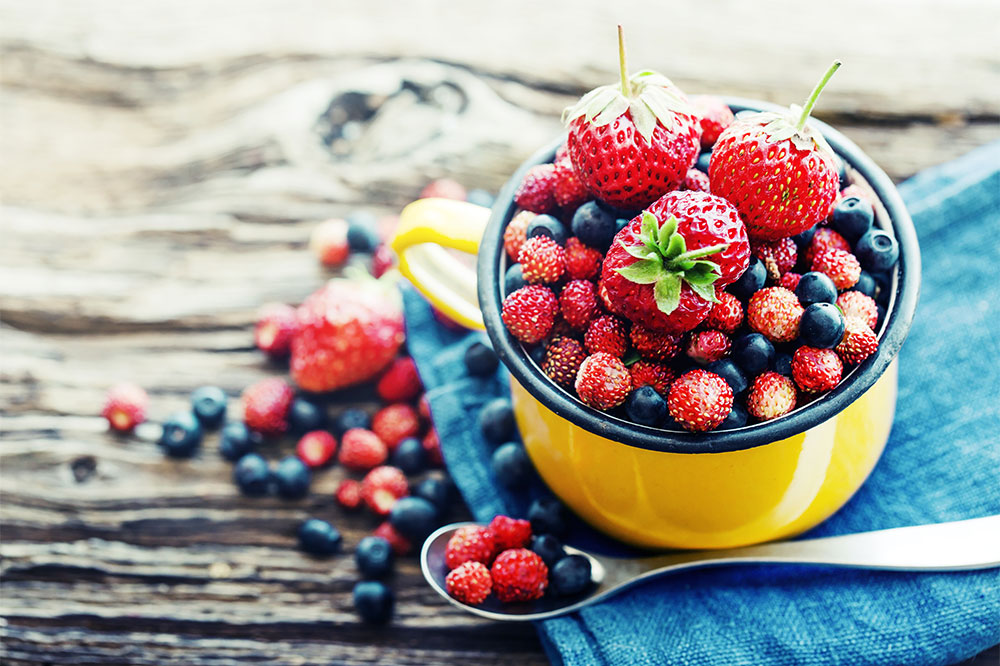Effective Nutritional Strategies for Eczema Management: Top 5 Foods You Should Incorporate
Discover comprehensive nutritional strategies to effectively manage eczema. This article explores top foods like berries, probiotics, bananas, nourishing broths, and dairy alternatives that can help soothe inflamed skin, reduce flare-ups, and support skin health. Implement these dietary tips alongside medical treatments to improve quality of life and minimize eczema symptoms. Learn how incorporating these nutrient-rich foods into your daily routine can make a significant difference in controlling this chronic condition.

Effective Nutritional Strategies for Eczema Management: Top 5 Foods You Should Incorporate
Eczema, medically known as atopic dermatitis, is a persistent inflammatory skin disorder that affects a considerable number of adults worldwide. Characterized by intense itching, dryness, redness, irritation, and sometimes blistering, eczema can significantly diminish quality of life. While genetic predispositions and environmental factors play crucial roles, emerging research highlights the importance of diet and nutrition in managing and reducing the frequency and severity of flare-ups. Proper nutritional choices can serve as complementary strategies alongside medical treatments, helping to soothe inflamed skin and promote overall skin health.
Incorporating Nutrient-Rich Fruits: Berries
Berries such as strawberries, blueberries, raspberries, and blackberries are packed with antioxidants and bioactive compounds, notably quercetin. Quercetin is a powerful natural flavonoid that acts as an anti-inflammatory agent and antihistamine, reducing histamine release that contributes to allergic reactions. Additionally, its antioxidant properties help neutralize free radicals, protecting skin cells from oxidative stress, which can exacerbate eczema symptoms. Including berries in your daily diet can help strengthen your skin's resilience and decrease the likelihood of eczema outbreaks triggered by environmental allergens or other irritants.
Probiotic-Rich Foods: Yogurt and Fermented Items
Greek yogurt containing live probiotics can enhance immune function and modulate allergic responses, which are often underlying factors in eczema flare-ups. The probiotics found in fermented foods such as kefir, sauerkraut, miso, and tempeh help restore the balance of gut microbiota, supporting immune system regulation and reducing systemic inflammation that affects the skin. Regular consumption of these foods can contribute to a healthier gut-skin axis, leading to fewer and less severe eczema episodes.
Bananas and Other Potassium-Rich Foods
Bananas are an excellent source of potassium, a mineral that plays a vital role in reducing inflammation and soothing irritated skin. Their anti-inflammatory properties can help diminish swelling and redness associated with eczema. Other potassium-rich foods include sweet potatoes, avocados, white beans, and acorn squash, all of which can be integrated into an eczema-friendly diet to promote healthier skin and support healing processes.
Nutritious Broths: Supporting Skin Cell Repair
Homemade beef and chicken broths enriched with nutrient-dense ingredients provide essential amino acids, collagen precursors, and minerals vital for skin repair and regeneration. Consuming nourishing broths can supply the body with the building blocks necessary to maintain intact skin barriers, reduce inflammation, and prevent further deterioration that may lead to eczema flare-ups. Adding these broths into your regular diet can aid in strengthening the skin from the inside out.
Dairy Alternatives: Rice Milk for Those with Dairy Allergies
Many individuals with eczema experience sensitivity or allergy to dairy products, which can worsen their skin condition. Replacing cow’s milk with rice milk offers a safe, hypoallergenic alternative that minimizes the risk of allergic reactions. Rice milk is naturally rich in carbohydrates and provides essential nutrients without triggering eczema symptoms. Incorporating dairy substitutes like rice milk can support skin health while avoiding flare-ups linked to dairy allergies.
Although these dietary strategies can significantly support eczema management, they are not standalone cures. It is essential to seek personalized medical advice to develop a comprehensive treatment plan, which may include medications such as DUPIXENT®, corticosteroids, or topical ointments. Always consult healthcare professionals before making dietary changes or starting new therapies, especially if you have underlying allergies or other health conditions.





